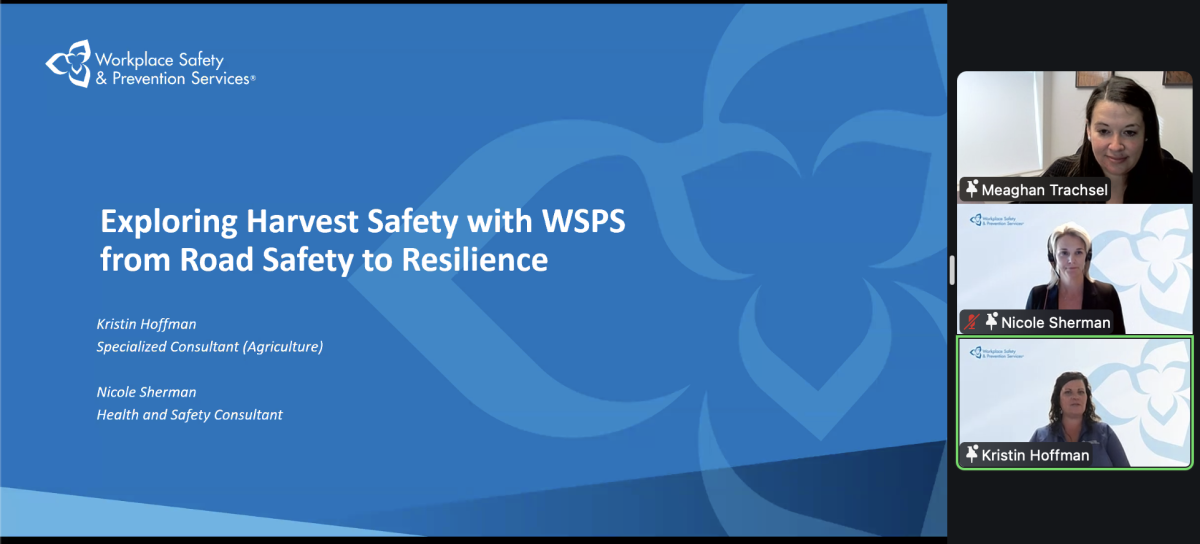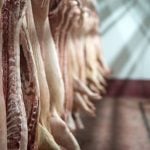A re-elected Conservative federal government will put up $500 million over four years to work with Canada’s provinces on an “agricultural flexibility” program, Agriculture Minister Gerry Ritz said Thursday.
A federal/provincial flexibility program will deliver “region-specific programs that help farm families cope with the costs of production pressures, promote innovation, ensure environmental sustainability, and respond to market challenges and opportunities important to each province,” the party said in a release Thursday.
The Conservatives’ pledge, which follows calls beginning last year from the Canadian Federation of Agriculture for what it dubbed “AgriFlex,” comes in the wake of recent ag policy announcements by the Liberal and Green parties so far, leading up to a federal election Oct. 14.
Read Also

Exploring Harvest Safety
Kristin Hoffman of WSPS explains measures for increased farm safety around harvest season
In a separate release Friday, the Ontario-Quebec Grain Farmers Coalition said it and the CFA launched the concept of flexible regional funding under the AgriFlex banner last year, with the core concept that the viability of the family farm can only be maintained if farmers have programs in place allowing them to plan for the long-term.
The grain farmers’ coalition noted that Liberal leader Stephane Dion’s ag policy platform released last week proposes a four-year, $564 million “Regional Flexibility Fund” which would invest in existing regional programs such as Ontario’s grains and oilseeds Risk Management Program (RMP) and Quebec’s Assurance stabilization des revenues agricoles (ASRA).
“The amount the Conservatives and Liberals have pledged isn’t enough to fully fund regional programs to the extent necessary, but it is a step in the right direction and a good foundation for the future,” said Walt Charbonneau, vice-president of the coalition.
“The Conservative and Liberal agriculture platforms are a major turning-point in federal policy-making,” coalition president William Van Tassel added. “The programs and policy frameworks coming out of Ottawa were designed as one-size-fits-all for too long.”
Slaughter capacity
Ritz and Quebec MP Christian Paradis, the Conservatives’ secretary of state for agriculture, also pledged Thursday to invest $50 million for “strong slaughter capacity in various regions of the country to support our beef and dairy industries, and other livestock sectors.”
Such a fund, they said, “will help existing facilities with operational change and modernization to ensure Canada’s agriculture remains self-sufficient and less reliant on long-haul shipments for slaughter.”
The two MPs also reiterated previous pledges, including a plan to cut the federal excise tax on diesel fuel in half, which they said will save farmers input costs of over $47 million per year.
They also reiterated well-known party policy, pledging to “continue to work with western Canadian grain farmers to ensure that the results of their plebiscite are respected and that they are given freedom to choose whether to sell grain on the open market or through the Canada Wheat Board.”
As well, the party pledged to “continue to stand up for supply-managed sectors nationally and internationally through any future World Trade Organization meetings and in bilateral trade negotiations.”
The two Conservative MPs also took a swing at the Liberals, saying Dion’s proposed carbon tax “will raise the price of everything farmers buy” and warning that Dion would raise taxes on diesel fuel to 11 cents per litre, which they said would add $166 million a year in expenses for farmers.
“We are delivering support that puts money back into the pockets of Canadian farmers,” Ritz said. “Our formula is simple and it works. We listen to farmers, we work with farmers and then we deliver the results farmers want.”
“Canada must continue to lead the world in agricultural practices, and research and development so that tomorrow’s generation of farmers do not just survive, but thrive as they work to support their families,” Paradis said.















